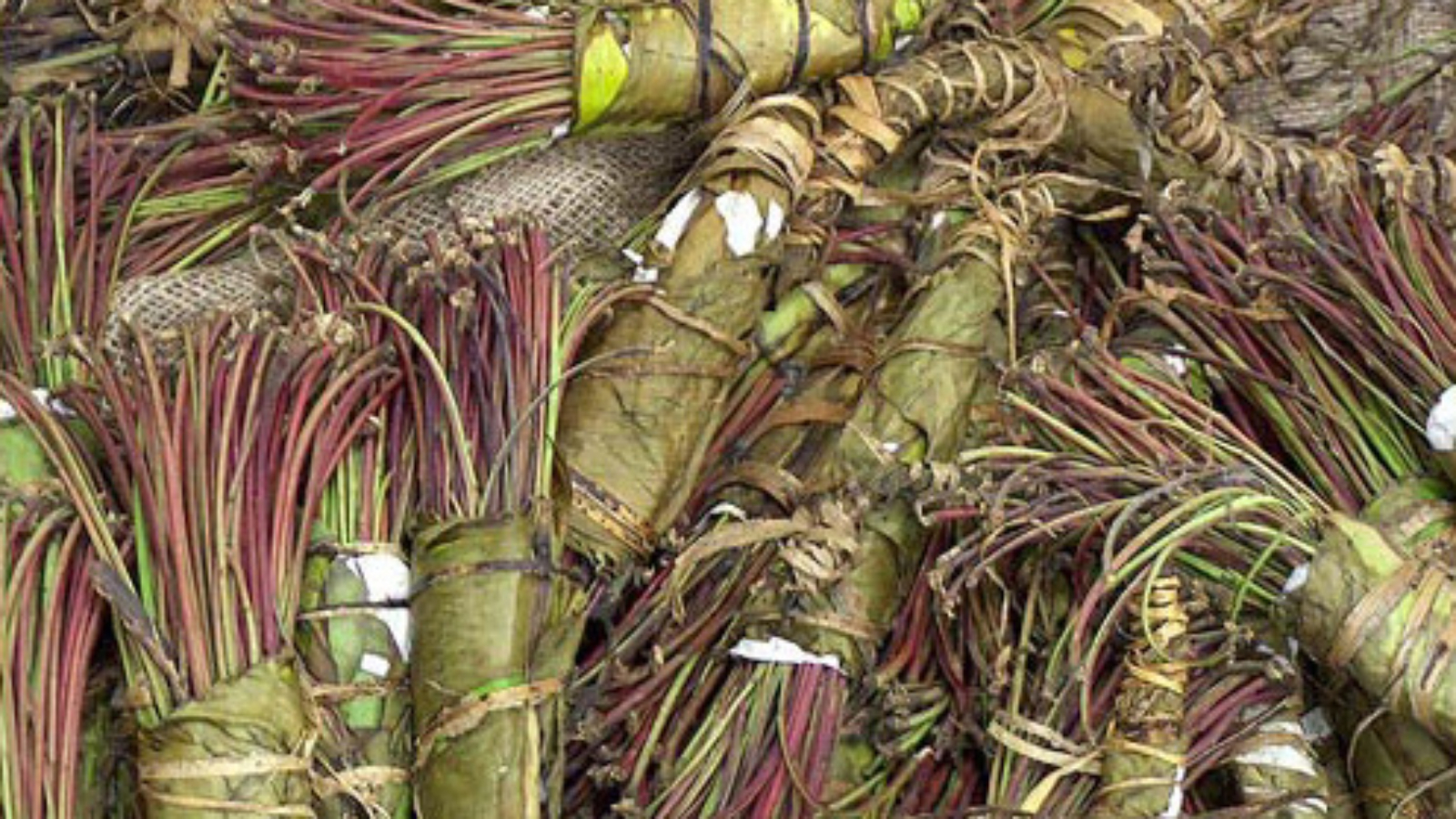By Will Becker
On June 24, 2014, a shrub made headlines. The U.K.’s Home Secretary Theresa May announced that khat, also known as miraa in East Africa, would be made illegal, following other similar bans of the plant in Western nations with large East African diaspora populations. The plant is cultivated predominately around the Horn of Africa in countries like Djibouti, Ethiopia, Eritrea, Yemen, and most notably Somalia. Khat, when chewed (or occasionally when brewed into tea), acts as a stimulant that has been described by some as the Arabian/Somali equivalent to coffee or tea, and by others as a harsh amphetamine-like drug that plagues society. Such vastly contrasting opinions of the drug lead many to wonder what the reason behind the khat ban actually is.
Studies have found that consuming the plant causes excitement, euphoria, loss of appetite, and has a mild-to-moderate risk of psychological dependence (less than tobacco or alcohol), but the World Health Organization does not consider khat to be seriously addictive. Mustafa Al-Absi, a Yemenite professor of behavioral medicine at the University of Minnesota, recently conducted a study that found khat use is generally associated with tobacco use, and when both are used together, their effects can be associated with blunted cardiovascular stress response and enhanced negative mood.
Supporters of khat prohibition generally reference khat’s adverse effect on national productivity, and in the case of Yemen, its contribution to the country’s water shortage – a daily bag of chew requires an estimated 500 liters of water. Indeed, Dr. A. A. Gunaid from Sana’a University has warned, “Khat chewers experience euphoria followed by depression, while people who are genetically predisposed are extremely vulnerable to psychosis.” In addition, the Conservative government had also referenced the khat trade’s purported relation to terrorism, specifically the Somali-based Islamist group al-Shabab. Karen Bradley, minister for the Home Office, told the BBC last year “the U.K. was at risk of becoming a base for organized criminals who wanted to smuggle khat to other countries where it was controlled.”
But most khat sellers and users are not members of organized crime. As such, many say that the punishment for chewing khat does not fit the supposed ‘crime,’ if it could even be considered one. David Anderson, director of Graduate Studies at Warwick University and author of The Khat Controversy, recently told World Policy Journal about his time working with the Advisory Council on the Misuse of Drugs (ACMD), which conducted an investigation for the U.K. government into whether or not the health, social, or criminal concerns caused by ‘khat culture’ necessitated a ban.
According to Anderson, “Unequivocally, we saw absolutely zero evidence that connects khat with anything to do with terrorism.” Indeed, this was the stance of the ACMD report, which not only recommends that “the status of khat is not changed and is not controlled under the Misuse of Drugs Act 1971,” but also states that the council had “not been provided with any evidence of al-Shabab involvement despite repeated requests for this information from a number of national and international official sources.” In addition, he stated, “there are only minimal health harms associated with khat,” and “those health harms did not even remotely justify banning the substance.” Such a deduction, he went on to say, was also present in the Dutch equivalent of the ACMD’s report – yet both countries still chose to ban the substance. This deduction also echoes the results of a 2007 report, where “the findings suggested a weak association between khat usage and mental illness, with no evidence of causality.”
Ultimately, Anderson noted the bans exist because of a “political issue which overrides all other issues” associated with khat. Apparently, the American government pressured European nations to ban khat, especially from countries where the United States officials believed the substance was being exported into North American markets from European airports. He added, “and those principle airports were Schiphol and Heathrow.”

Perhaps politics is the only plausible reason why a government-appointed scientific body would be completely disregarded by the very government that commissioned it. And in many ways, evidence suggests that prohibiting the use and sale of khat in Western countries further marginalizes an already disenfranchised diaspora population. A recent Guardian article describes how the U.K. ban on khat has devastated the economy of a small Kenyan town that prospered mostly on khat exports to diaspora populations.
Many supporters of khat prohibition in the West commonly cite the destitute living conditions of the communities that consume khat, arguing the plant is the cause. However, Anderson, along with others, agrees that such a distinction has been made backwards. He noted that the Somali diaspora is one of, if not the most, deprived immigrant community in the U.K., and khat consumption (or overconsumption) is rather “an effect of deprivation, not the cause.”
Furthermore, the prohibition criminalizes a cultural tradition practiced for thousands of years. The way khat is sold in countries that have illegalized the substance functions differently from the mafrishes (or khat cafés) that can be found where it is legal. Now, there are none of the cafés or shops that formerly characterized Somali communities in the U.K. and the khat culture they reinforced — limiting the opportunities for Somalis and others to socialize and connect with their communities. According to a report by the Transnational Institute, given the illegality, traders protect themselves through expediting sales, giving customers only minimal face time.
In the end, not many – particularly from diasporic communities– seem to truly benefit from banning the consumption and sale of the plant. Khat prohibition leaves the communities in the West who identify with the chewing culture with “no social intercourse, no community building, but all the alienation and disruption of a drug market.”
*****
*****
Will Becker is an editorial assistant at World Policy Journal.
[Photos courtesy of Wikimedia Commons]
